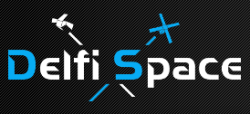
Within the Delfi program, DelFFi is the third satellite project. As a member of the FP7 QB50 consortium, TU Delft aims at contributing two nano-satellites, called Delta and Phi, in order to create the DelFFi mission’s space segment. This will be a very important part of the QB50 mission, which is a unique mission based on a global network of fifty nano-satellites.
The DelFFi Project aims to achieve its goal by utilizing innovative concepts, reliable methodologies as well as modern technologies. The QB50’s satellites make up a network that constantly goes through permanent changes in terms of velocities and positions. But, the DelFFi Project will make sure that the relative dynamics of Delta and Phi nano-satellites are autonomously controlled by utilizing different guidance, navigation as well as control technologies.
The Project is expected to bring several benefits to QB50. For example, DelFFi can play an important role in helping QB50 serve as a platform for integrating different concepts related to distributed space. In addition to demonstrating autonomous formation flying by utilizing GNC architecture, the DelFFi Project aims at facilitating students with practical experience as well as cutting-edge technology. Another important goal of the project involves characterizing low thermosphere with improved scientific return by utilizing distributed observation on different geometric baselines.